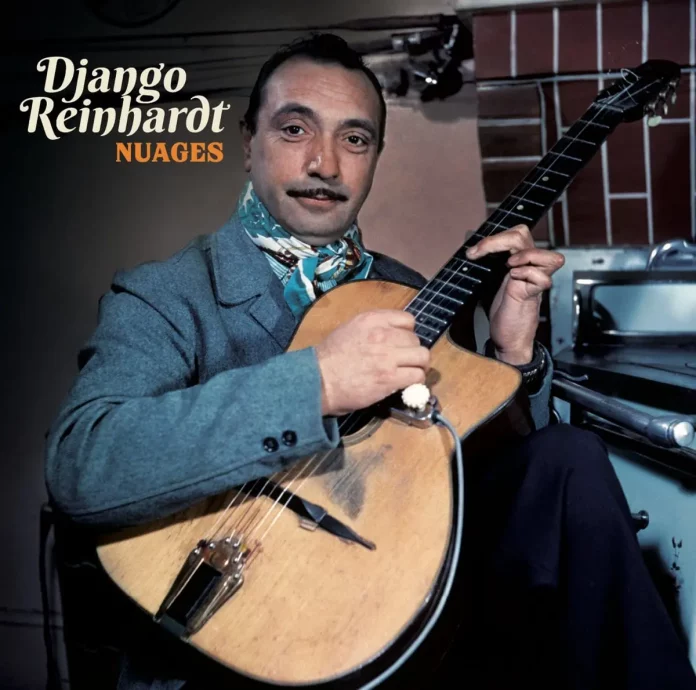This attractively packaged, 26-track compilation of late-era recordings from the Belgian, French and Roma guitar genius makes a fine introduction for those not acquainted with his latterday career. However, as Django freaks will know, the material – drawn from three different sources – has been available previously, and there are some omissions.
So what is the material? The first eight tracks comprised Reinhardt’s album, The Great Artistry Of Django Reinhardt, recorded two months before his death in May 1953, produced by Norman Granz and released on the Clef label the following year.
The closing four numbers – Le Soir, Chez Moi, I Cover The Waterfront and Deccaphonie – were waxed for Decca in April 1953 and released as singles. Several tunes were cut at Decca, but only these four, which had already been paired with the Clef recordings, both on Gitanes Jazz Productions’ 2002 CD entitled Nuages, and on Jazz Images’ 2017 offering (same title) are included here. The remaining Decca cuts – including Anouman, D.R. Blues, Crazy Rhythm and Fine And Dandy – are not featured.
Sandwiched between the Clef and Decca selections, this new collection adds 18 tracks from Reinhardt’s July and October 1947 sessions for Eddie Barclay’s Blue Star label, including early or alternate takes on September Song, Brazil, Insensiblement and Gipsy With A Song. The inclusion of the Blue Star material is welcome, but both these titles and the Clef recordings have already been available elsewhere, including Universal France’s comprehensive, two-CD, 33-track 2003 collection Pêche À La Mouche.
The 20-page booklet contains colourful reproductions of both the original Artistry album sleeve and that of an eight-track mini-LP containing the four Decca sides. There are some wonderful black-and-white photos of Reinhardt with Édith Piaf, Duke Ellington and songwriter David Rose, the somewhat basic discography nevertheless gives all relevant session info, and The Penguin Guide To Jazz’s Brian Morton provides an affectionate appreciation.
Many fixate on Reinhardt’s classic 1930s output featuring his original Quintette du Hot Club de France, perhaps rightly so. However, his swansong period, as heard here, saw him making the jump to electric guitar (usually a Selmer with an electric pickup) and embarking on a new path which melded bebop and other genres with his own gypsy-jazz style. So while it is neither new nor comprehensive, this smartly presented compilation offers both newcomers and seasoned admirers another glass through which to recall the master’s twilight years.
Discography
Night And Day; Blues For Ike; Nuages; Insensiblement; Brazil; September Song; Confessin’ (That I Love You; Manoir De Mes Reves; September Song (1947 Version); Brazil (1947 Version); I’ll Never Smile Again; New York City; Django’s Blues; Love’s Mood; I Love You; Topsy; Moppin’ The Bride (aka Micro); Insensiblement (1947 Version); Mano; Blues Primitif; Gipsy With A Song (Version 1); Gipsy With A Song (Version 2); Le Soir; Chez Moi; I Cover The Waterfront; Deccaphonie (78.27)
Reinhardt (g, elg), Eugène Vées, Joseph Reinhardt (g); Maurice Vander; Martial Solal (p); Pierre Michelot, Emmanuel Soudieux (b); Hubert Rostaing (cl); Fats Sadi (vib); Jean-Louis Viale, André Jourdan, Pierre Lemarchand (d). Paris, France. Tks 1–8: 10 & 11 March 1953. Tks 9-15: 18 July 1947. Tks 16-22: 4 October 1947. Tks 23-26: 8 April 1953.
20th Century Masterworks 170051















